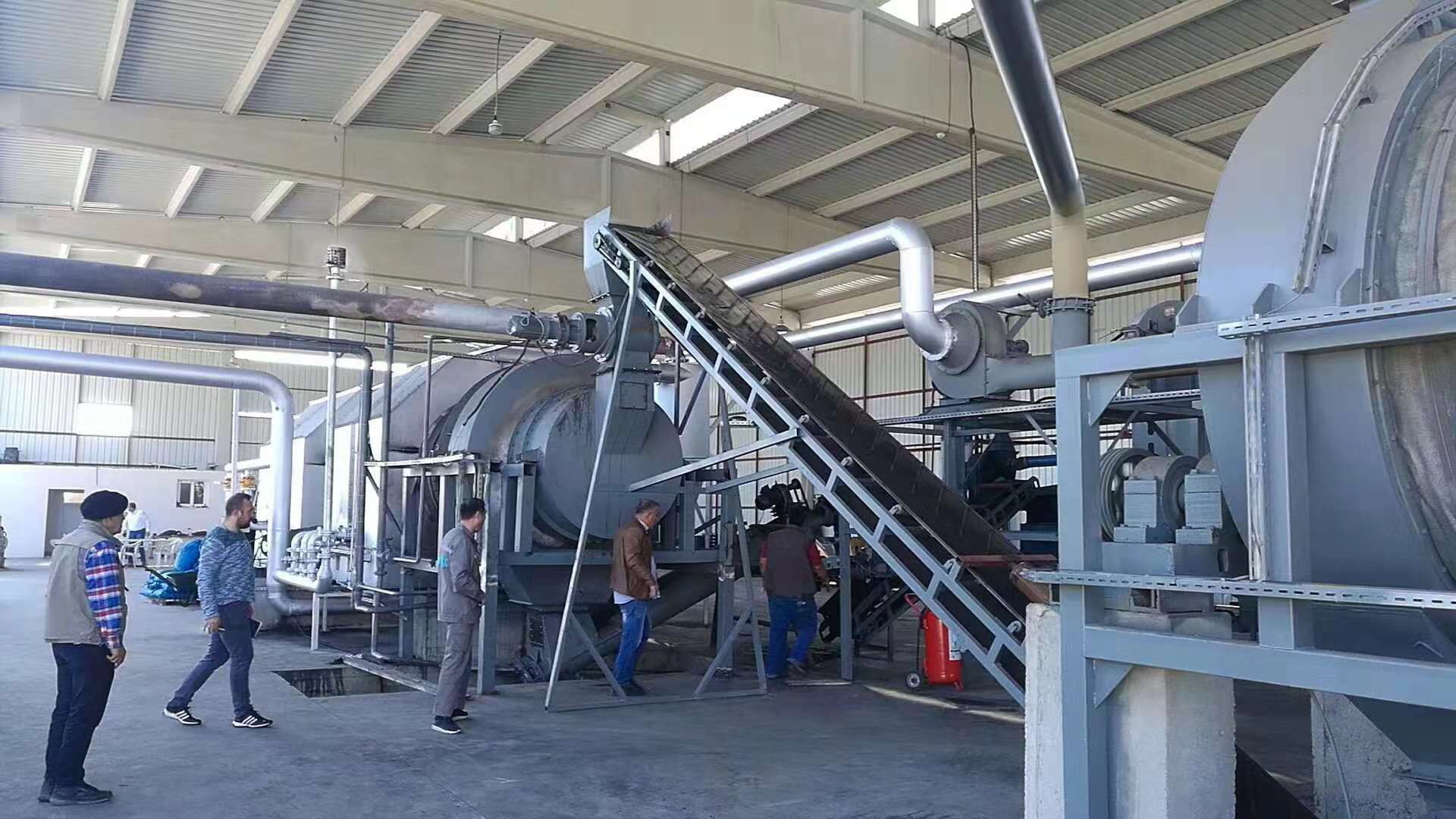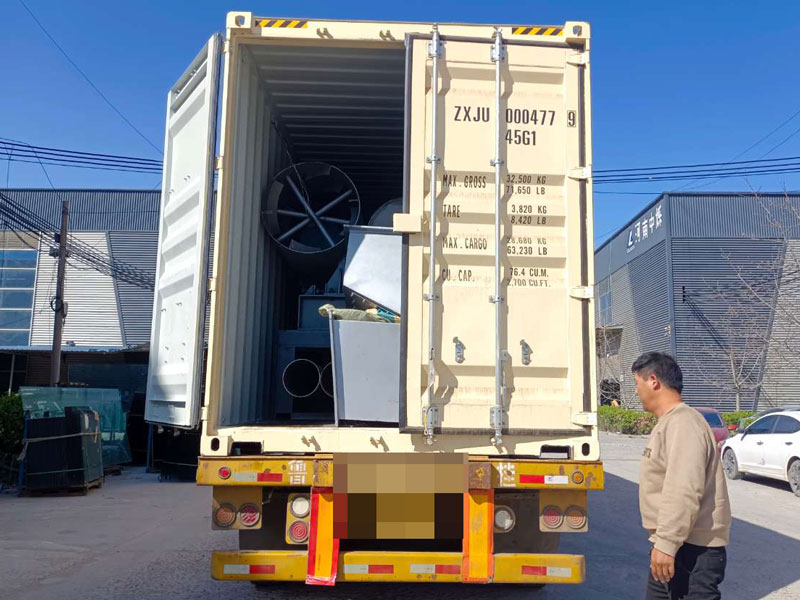Biomass carbonization, also known as biomass pyrolysis, is a process that converts organic materials into valuable carbon-rich products. This innovative technology offers numerous benefits across various sectors, ranging from renewable energy production to soil enrichment. In this post, we will delve into the advantages of biomass carbonization and how it contributes to a sustainable future.

BST-30 Palm Shell Carbonization Plant Installed in Turkey in 2018
Renewable Energy Generation: One of the significant benefits of biomass carbonization is the production of renewable energy. Through the process, biomass materials such as agricultural waste, wood chips, or crop residues are converted into biochar, bio-oil, and combustible gases. These products can be used as sustainable fuel sources, replacing traditional fossil fuels and reducing greenhouse gas emissions. The most method for carbonization is biomass carbonization machine.
Carbon Sequestration: Biomass carbonization plays a crucial role in carbon sequestration, which involves capturing and storing carbon dioxide from the atmosphere. Biochar, a byproduct of the process, has a stable carbon structure that can remain in the soil for hundreds to thousands of years. By incorporating biochar into agricultural soils, carbon is effectively stored, helping mitigate climate change by reducing carbon dioxide levels in the atmosphere.
Soil Enrichment and Fertility: Another significant benefit of biomass carbonization is its positive impact on soil health and fertility. Biochar, when applied to the soil, improves its physical, chemical, and biological properties. It enhances water retention, reduces nutrient leaching, and provides a habitat for beneficial microorganisms. As a result, soil fertility and productivity are enhanced, leading to improved crop yields and sustainable agriculture practices. The biomass charcoal machine is the right choice.

Parts of BST-10 Beston Sludge Carbonization Machine To Serbia in 2023
Waste Management and Circular Economy: Biomass carbonization offers a sustainable solution for waste management. It allows the conversion of various organic waste materials, such as agricultural residues, forestry waste, or food scraps, into valuable carbon-rich products. By transforming waste materials into biochar and bio-oil, biomass carbonization promotes a circular economy by reusing and recycling organic resources.
Pollution Reduction: Traditional waste disposal methods, such as open burning or landfilling, contribute to air and soil pollution. Biomass carbonization provides an environmentally friendly alternative by converting organic waste into useful products without harmful emissions. It helps reduce air pollutants, such as particulate matter and greenhouse gases, while minimizing soil and water contamination. View some options: https://www.bestongroup.com/charcoal-manufacturing-machine/.
Sustainable Agriculture Practices: The application of biochar derived from biomass carbonization in agriculture offers long-term benefits for sustainable farming practices. It improves nutrient retention in the soil, reduces the need for synthetic fertilizers, and enhances soil microbial activity. Additionally, biochar-amended soils require less irrigation, reducing water usage and improving water efficiency.
Economic Opportunities: Biomass carbonization presents significant economic opportunities. The production of biochar, bio-oil, and combustible gases can generate income streams through their use as fuel, soil amendments, or industrial feedstocks. Additionally, the adoption of biomass carbonization technology stimulates job creation and supports local economies, particularly in rural areas with abundant biomass resources.
As we strive for a greener and more sustainable future, biomass carbonization emerges as a promising technology with multifaceted benefits. From renewable energy generation and carbon sequestration to soil enrichment and waste management, biomass carbonization offers a holistic approach to address environmental challenges while promoting economic development. By harnessing the potential of biomass resources, we can pave the way for a more sustainable and resilient planet. View this site to get an inquiry: https://www.bestongroup.com/pl/.